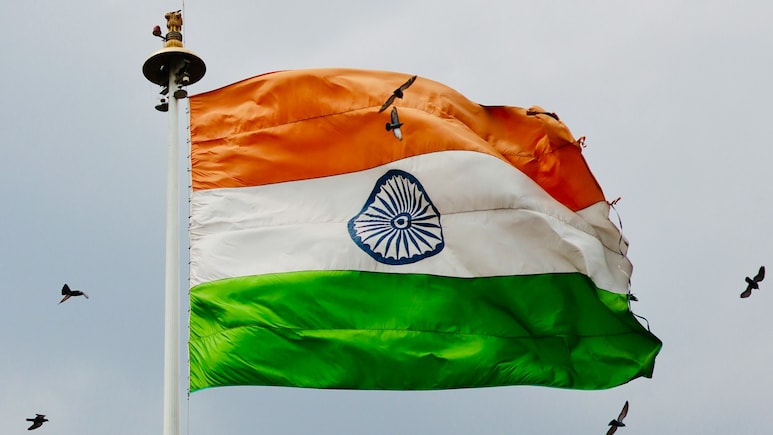
- India celebrates Independence Day annually on August 15, marking freedom from British rule in 1947
- The Indian national flag must be hoisted briskly and lowered slowly, with the saffron band always on top
- Since 2022, the flag can be flown at night if properly illuminated and displayed prominently
Every year on August 15, India celebrates its Independence Day, honouring the sacrifices of freedom fighters who fought for the nation's liberty. On this day, the national flag, the Tricolour, is hoisted across the country, from homes to commercial locations, and the national anthem is sung with pride. August 15, 1947, marked the end of nearly 200 years of British rule, and India began its journey as a democratic, sovereign nation. Since then, the day has been commemorated with flag-hoisting ceremonies, cultural programs, and tributes to those who gave their lives fighting against colonial rule.
According to traditional protocol, the national flag should be hoisted at sunrise and lowered at sunset. However, following the 2022 amendment to the Flag Code of India, the flag can now be flown at night if it is adequately illuminated. On Independence Day, the flag is specifically "hoisted" from the bottom of the flagpole to the top, symbolising India's triumph over colonial rule in 1947.
Rules for hoisting the Indian National Flag on August 15
Dos for Hoisting the Tricolour
- The flag should always be hoisted briskly and lowered slowly with dignity. The saffron band must be at the top when hoisted vertically.
- Display the flag in a position of prominence, ensuring it is not overshadowed by other flags or objects.
- When displayed horizontally, the saffron band should be at the top. When displayed vertically, the saffron band should be on the left side as viewed by the audience.
- Ensure the flag is clean, undamaged, and free from tears or discolouration.
- The flag can be made of hand-spun, hand-woven, or machine-made cotton, polyester, wool, or silk khadi bunting, as per the Flag Code.
- The flag can be flown on all days, including Sundays and holidays, by individuals, private organisations, and educational institutions, as per the amended Flag Code of 2002.
- The flag may be flown at night only if it is well-lit and prominently displayed.
- The flag's proportions (length to width ratio of 3:2) must be maintained, regardless of size.
- During ceremonies, the flag may be used to cover a statue or monument being unveiled, but should not touch the ground or floor.
- A damaged or soiled flag should be disposed of privately by burning or in a manner consistent with its dignity.
Don'ts for Hoisting the Tricolour
- The flag must not be used in a manner that insults its dignity, such as dipping it in salute to any person or thing.
- The flag must not be flown upside down (saffron band at the bottom) or in a manner that disrespects it.
- The flag must not touch the ground, floor, or water.
- The flag must not be used for commercial purposes, such as on costumes, cushions, napkins, or other items, except as permitted (e.g., paper flags during national events).
- The flag should not be used as a covering for a building, vehicle, or platform, nor as a drapery, except in state or military funerals.
- The flag must not be flown below or alongside another flag in a way that diminishes its prominence.
- The flag must not have any writing, printing, or defacement on it.
- The flag or its design must not be used as clothing, uniforms, or accessories below the waist, though flag pins or emblems may be worn respectfully.
- The flag must not be intentionally torn, burned, or mutilated in public, as this is an offence under the Prevention of Insults to National Honour Act, 1971.
- The flag should not be stored in a way that could soil or damage it.
Additional Guidelines
Since the 2002 amendment to the Flag Code, private citizens can hoist the flag at homes, offices, or factories, provided they follow the above rules. Violation of the Flag Code or insulting the flag can lead to imprisonment for up to three years, a fine, or both, under the Prevention of Insults to National Honour Act, 1971.
Track Latest News Live on NDTV.com and get news updates from India and around the world

